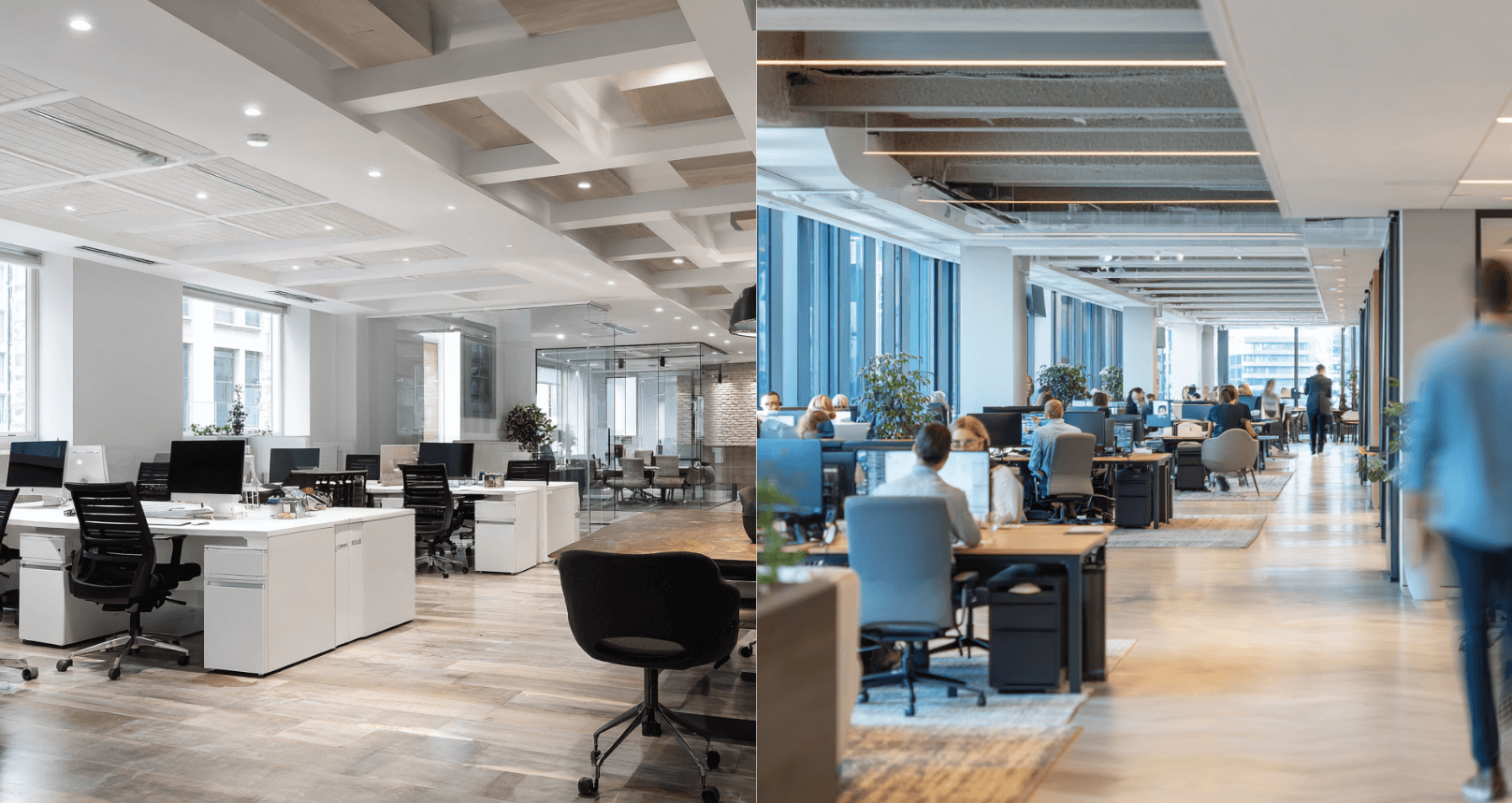Conference room inspiration from 5 unlikely sources
Rethinking conference rooms to meet the needs of a hybrid workforce.

Conference rooms are where community and motivation are nurtured. But most employees aren't coming back to the office full-time. Many will stay remote. Even more will become hybrid workers — they'll come to the office some of the time.
How do you create a meeting space experience that continues to foster community and motivation in the new, hybrid workplace? Many workplace leaders are looking beyond the office for ideas.
Feng Shui and space
Feng Shui is an ancient philosophy that focuses on harmonizing one's living space with the energies of the natural world. Furniture, fixtures, knickknacks, even tiny gemstones — they all have a proper place in one's environment that can facilitate human happiness. So, too, does empty space. Companies need to stop viewing empty space as wasted space.
"It's not wasted space," says Tracy Wymer, VP of Workplace Strategy at Knoll "It's comfort space. It's space that allows people to comfortably pass by one another."
In the past, when conference rooms were underutilized, you might have repurposed it into another space type. Moving forward, consider revising your definition of ideal occupancy in small spaces like conference rooms. Give them the space to create their own.
Movie theaters and immersion
Movie theaters are designed to bring audiences into the film. Perhaps a similar design can work to engage both co-local and remote employees, as well as encourage workers to come to the office more often. An example:
Rather than sit at a long, rectangular table in a drab rectangular room watching a TV screen, consider tiered seating or pods of comfortable seats in the front of the room. With tiered or terraced seating, people can choose a spot that matches their comfort level around others. They can also easily pivot and engage with everyone in the space instead of being cut off by right angles and distance.
Adding a large screen or projection at the front of the room can create a more immersive experience for folks in the room. Investing in quality audio will make it easier for everyone (co-local and remote) to understand one another.
Meditation and mindfulness
Often, the act of putting everyone in a room to develop the next big "thing" falls flat. You can't always force ideation. So rather than amping up stress levels and performance, conference rooms can become meditation rooms for self-awareness and relaxation.
You can do away with chairs and tables altogether. Instead, create an open space with natural light and invite employees to wear comfortable clothes they can move around in. Research shows that even a single minute of meditation can enhance a practitioner's mood and creativity. Studies also show that meditation increases employee productivity by 120%.
Nature and inspiration
Immersing your team in nature can lead to more inspirational meetings while making everyone feel safe in an open space.
You don't even have to wander too far away from your office to give everyone a sense of a new environment. For instance, if your building has a courtyard or outdoor seating area, try conducting your meetings there. You can also purchase new outdoor seating or invest in landscaping to transform the space into one that's poetic and inspirational.
Even for your fully remote employees, encourage them to step outside with you — in their own environment — and conduct their presentation or meeting points outdoors. It may look silly, but going on a simple walk around the block can be a great idea for a remote worker to get some fresh air and still call in on their smartphone via Zoom (video optional).
For some insight into outdoor seating arrangements that breed creativity, take a look at how WeWork designs its outdoor spaces to boost human happiness (5).
Inclusion and listening
We all have the opportunity to make the workplace better. At the core of this is designing around inclusivity.
To be inclusive in your decisions, you must listen to your employees.
Find out what tools, experiences, and strategies work best for them. Then, you can make informed decisions that create the best meeting environment for everyone — no matter where they work. Continue to listen to your employees; their needs and expectations will change. Your conference room designs should change to meet these needs.
"We're not creating monuments. This isn't a monument to work we're creating," says Wymer. "What we're creating is a platform. And hopefully, that platform has the ability to shift over time."
Key Takeaways

DisruptCRE founder shares how corporate real estate is changing
Companies are moving employees from underutilized offices into "space as a service” options with utilization data.
Watch now
Half of offices are empty but you still can’t find a meeting room
Employees waste up to 30 minutes a day looking for a meeting room to meet in workplaces.
Read moreMost recent

Space waste: The industry’s naughty and nice list
Our sensors spilled the beans: What industry is winning, who's wasting and who's hogging your office real estate.
.png)
Improve your occupancy sensor RFP with our best practice guide
Discover essential questions to simplify your occupancy sensor RFP process and confidently choose the right vendor.

Does RTO actually work? A webinar debate with the data
Density’s RTO data sparks debate between a pro-office CEO and a remote-friendly workplace strategist.

A workplace love story: Phone booth meets sensor
Phone booths are booming—and occupancy sensors help companies manage and measure them with ease.
Explore other Density Products
Atlas for Workplace
Insights for the workplace that help you cut costs and deliver better spaces.
Learn more